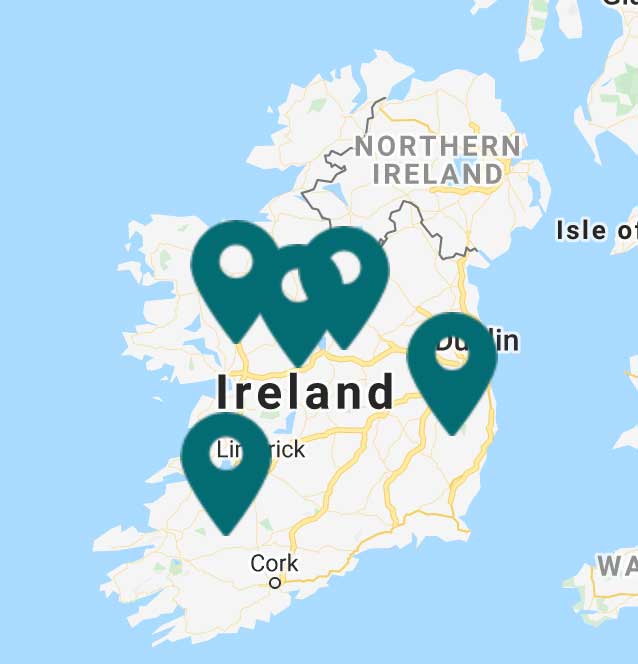
The holidays are the time of year most people are thinking about spending time with family, enjoying time off work and celebrating by attending Christmas parties and other festive activities and traditions. With that being said, the last thing most want to worry about is staying energy efficient and saving money on electricity and gas bills throughout the holiday season.
We’ve put together a short guide to help keep your energy bills down so you can enjoy the holidays without the worry of an expensive bill when it’s all said and done.
Upgrade your Christmas lights
If you’re like most, you probably reuse the same decorative lights year after year. Those old bulbs could be using anywhere from 5 to 10 watts each. Now multiply the wattage by the number of bulbs on each strand and it’s easy to see how it could end up costing you much more to run than they’re worth.
Miniature lights and LED bulbs are now available all over the place, so why not replace the old lights that you have to save a bit of money and reduce your energy usage. In fact, coloured LED bulbs can save anywhere from 80 to 90% when compared to traditional bulbs. In addition, LED bulbs last years without having to be replaced and are cool to the touch, making them safer for use with Christmas trees as they are less of a fire hazard.
If you’re in the habit of leaving your lights on after you’ve gone to bed, consider investing in an automatic timer that can turn your lights on and off at a set time each day. If anything an automatic timer will give you once less task to keep track of and save some energy at the same time.
You can also consider using fibre optic decorations or candles to provide festive lighting. Both options can save energy over traditional lights.
Limit the use of interior lighting
This tip really goes along with Christmas lights. If your home is decorated in lights, you may not need to turn on indoor lights as often, or you may be able to limit their usage. Check to see if your Christmas lights provide adequate room lighting, and keep a few light fixtures turned off if you can.
Buy gifts that don’t require batteries
Did you know that up to 40% of all battery sales are made during the holidays? That can equate to a lot of waste for our landfills when the batteries have been used. Consider purchasing gifts that don’t require batteries, or invest in rechargeable batteries that can be used more than once. If you do purchase a gift that requires the use of batteries, ensure you dispose of them safely and responsibly through local battery recycling programmes.
For gifts that require energy, make sure you compare the energy labelling and only buy products or appliances that are energy efficient.
Keep track of how much you cook – and cook efficiently!
Food is a big part of the holidays, and meals can require a substantial amount of energy to prepare. Whenever possible, utilise the microwave for cooking. Most foods take much less time to prepare in the microwave and can use up to 75% less energy when compared to a conventional oven. Slow cookers also help cut down on required energy. Full meals cooked in a slow cooker can cost as little as 17c!
When using a conventional oven keep the door closed as much as possible. If your oven has a window, use it to check on the food rather than opening the door. You lose heat every time the door is opened, and more energy is required to bring the oven back up to the set temperature. If you don’t have a window to check on the food, only open the door when it’s close to being done. You can even turn the oven off a few minutes before the food is ready, as the oven will keep cooking even while it starts to cool down.
Only use pans on the stove that match the size of the heating element, so you’ll keep more heat in the pan and less will go to waste. If using glass or ceramic, you can even reduce the heat by a few degrees to achieve the same result.
Keep your heating and hot water temperatures in check
Set your thermostat between 18 and and 20 degrees as this is the most comfortable range for most people. For every degree you reduce the room temperature you should expect a 3% reduction in your heating bills. Ensure you bleed the radiators to get rid of any locked air, or invest in an automated device that will handle it for you. If you haven’t already had your boiler serviced for the heating season, it’s not too late. A serviced and efficient boiler will reduce the amount of fuel that’s wasted. It’s also wise to invest in a chimney balloon to stop heat from escaping up the chimney and to limit draughts.
To reduce the amount of energy spent on hot water, set the temperature in between 60 and 65 degrees. Remember, anything lower than 55 degrees may not be hot enough to kill bacteria. Ensure your hot water pipes are well insulated and your hot water cylinder has a tank jacket. It’s also a good time to make sure the clocks on your timer are set correctly, along with the on/off times. If you don’t have a timer on your hot water cylinder it can be beneficial to invest in a 7 day timer to help reduce your energy spend and to keep the water hot for when you need it.
Upgrade the energy efficiency of your home
There are several programmes available across Ireland that can help reduce your energy costs, including KORE’s Energy Efficiency Incentive with Electric Ireland, KORE’s Warmer Homes Scheme, and the Better Energy Homes Scheme.
KORE’s Energy Efficiency Incentive with Electric Ireland provides discounts on your electricity or gas bill when you install energy efficiency upgrades in your home. Qualifying measures includes wall insulation, floor insulation, roof and attic insulation, new windows and doors, high efficiency boilers and heating controls. If your home was built before 2006 you could even combine this incentive with the Better Energy Homes Scheme to earn cash back. A typical home with new cavity wall insulation and attic insulation installed could save up to €1,014 off the total cost.
If you own a home built before 2006 and collect Fuel Allowance, Jobseekers Allowance for more than 6 months with a child under 7 years of age or Family Income Supplement you may even qualify for free insulation under KORE’s Warmer Homes Scheme. This Scheme provides insulation and draught proofing at no cost to the home owner.

